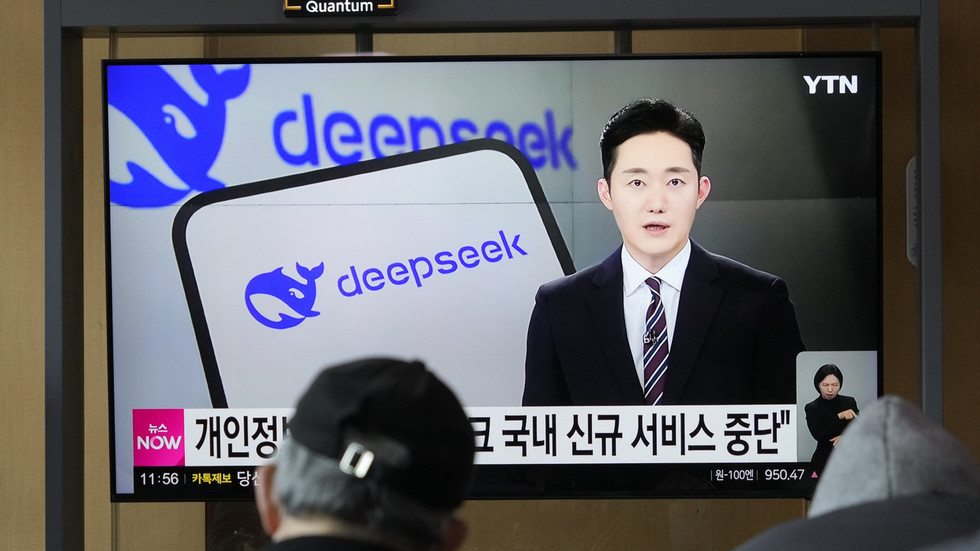South Korea’s Bold Move: The Ban on DeepSeek and Its Implications
In a groundbreaking regulatory decision, South Korea has announced a ban on DeepSeek, a prominent artificial intelligence tool known for its data aggregation capabilities. This move has sent ripples through the tech community, raising significant questions about the future of AI technologies in the region. The ban is not merely an isolated incident but rather a reflection of growing concerns over data privacy and the ethical use of artificial intelligence.
The implications of this decision extend beyond DeepSeek itself, prompting a broader debate on the balance between innovation and regulation. As South Korea navigates this complex landscape, the decision serves as both a cautionary tale and a call to action for stakeholders in the tech industry, policymakers, and consumers alike.
The Context of the Ban on DeepSeek
DeepSeek, which has gained popularity for its ability to sift through vast amounts of data to extract insights, has raised alarms regarding data privacy. The application utilizes machine learning algorithms to analyze user data, which, while beneficial for businesses, poses significant risks if not handled responsibly. Concerns have been voiced by various advocacy groups and the public about how such technologies could potentially infringe on individual privacy rights.
In announcing the ban, South Korea’s government emphasized its commitment to protecting citizens’ personal data. This decision aligns with a global trend, as countries increasingly scrutinize AI technologies and their implications for privacy and ethical standards. The ban on DeepSeek is part of a larger framework that seeks to establish a robust regulatory environment for AI technologies.
The Growing Concerns Over Data Privacy
Data privacy has become a hot-button issue in recent years, with numerous high-profile breaches and misuse cases making headlines. In this context, South Korea’s ban on DeepSeek underscores a critical concern: the potential for AI tools to exploit personal data without proper consent or oversight.
- Unauthorized Data Use: There is a growing fear that AI tools might utilize personal data in ways that users are unaware of, potentially leading to identity theft or other malicious activities.
- Data Security: The security of data stored by AI systems has come under scrutiny, with concerns that inadequate protection measures could lead to breaches.
- Transparency: Users are increasingly demanding transparency in how their data is collected, used, and shared by AI applications.
South Korea’s regulatory decision reflects these concerns, as authorities strive to ensure that AI technologies operate within a framework that prioritizes user consent and data security.
Implications for Innovation
While the ban on DeepSeek is a significant step toward safeguarding data privacy, it also raises concerns about stifling innovation. The AI sector thrives on experimentation and the rapid development of new technologies. However, stringent regulations could hinder startups and established companies alike from exploring new frontiers.
Industry experts argue that a balanced approach is essential, one that encourages innovation while simultaneously ensuring that ethical standards are maintained. Some potential implications of the ban on DeepSeek for innovation include:
- Investor Confidence: Regulatory clarity can boost investor confidence, as businesses will have a clearer understanding of the rules of engagement.
- Startup Ecosystem: Striking a balance between regulation and innovation could foster a thriving startup ecosystem where new ideas can flourish without compromising user safety.
- Global Competitiveness: South Korea must navigate its regulatory landscape carefully to maintain its competitive edge in the global AI market.
The Path Forward: Striking a Balance
As South Korea moves forward from this bold decision, the focus will undoubtedly shift toward establishing a comprehensive regulatory framework that promotes ethical AI while fostering innovation. Here are some steps that could be considered:
- Engaging Stakeholders: Involving industry leaders, tech innovators, and advocacy groups in the regulatory process can help develop guidelines that benefit all parties.
- Creating a Regulatory Sandbox: Allowing companies to test their AI technologies in a controlled environment could lead to innovative solutions while ensuring compliance with regulations.
- Public Awareness Campaigns: Educating the public about data privacy rights and the ethical use of AI technologies is crucial for building trust.
Ultimately, a collaborative approach may yield the best outcomes, ensuring that South Korea remains at the forefront of AI innovation without compromising fundamental rights.
The Global Landscape of AI Regulation
South Korea’s ban on DeepSeek does not exist in a vacuum. It is part of a broader global movement toward stricter AI regulations. Various countries are grappling with similar issues as they seek to balance innovation and ethical considerations. The European Union, for instance, is actively working on the Artificial Intelligence Act, which aims to regulate AI technologies across member states.
These global efforts highlight a critical trend: nations are recognizing the need for a unified approach to AI regulation. As technologies evolve, so too must the frameworks that govern them, ensuring that ethical standards keep pace with innovation.
Conclusion: A New Era for AI in South Korea
The ban on DeepSeek marks a pivotal moment in South Korea’s journey toward responsible AI governance. While it raises questions about the future of AI technologies in the region, it also presents an opportunity for stakeholders to engage in meaningful dialogue about the ethical implications of innovation.
As South Korea navigates this new landscape, the focus should remain on fostering a regulatory environment that prioritizes user safety while encouraging technological advancement. The path forward will undoubtedly be complex, but with collaboration and open dialogue, South Korea can lead the way in establishing a model for responsible AI that can inspire other nations.
In summary, the ban on DeepSeek is not just a regulatory decision; it is a bold move that reflects a commitment to ethical standards in the rapidly evolving world of artificial intelligence. As the debate continues, one thing is clear: the future of AI in South Korea will be shaped by the delicate balance between innovation and regulation.
See more Future Tech Daily

